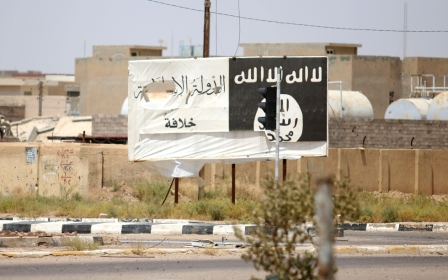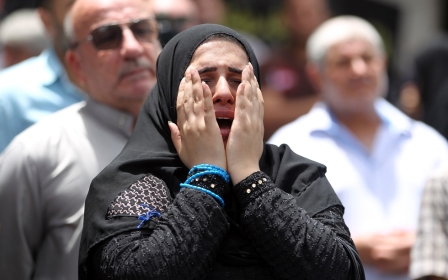Baghdad bombing toll rises to 292, scores of whom remain unidentified

Iraq's health minister increased the death toll from the Islamic State (IS) group bombing of a Baghdad shopping centre to 292 people, by far the deadliest single attack in more than a decade of violence.
In a statement on Thursday, Adila Hamoud said the identities of 177 people killed in the Sunday bombing have yet to be determined, while 115 bodies have been handed over to families.
The attack in the Karrada district also wounded 200 people, Hamoud said.
The minister told AFP on Tuesday that the process of identifying all the bodies - which she said at the time numbered 150 - was expected to take between 15 and 45 days.
People were already furious over delays in determining the fates of loved ones, and with the number of unidentified bodies now bigger, it may take even longer.
Mohammed Ghabban tendered his resignation as interior minister after the bombing, and authorities announced the execution of five convicts and the arrest of 40 militants in an apparent bid to limit fallout from the attack.
The blast sparked widespread anger among Iraqis, some of whom have accused the government of failing to do enough to protect them.
IS militants overran large areas north and west of Baghdad in 2014, but Iraqi forces have since regained significant territory from them.
In response to battlefield setbacks, IS has struck back against civilians, and experts have warned there may be more bombings as the group continues to lose ground.
Even as the death toll from the bombing mounted, Iraq received good news on the finanical front.
The IMF announced a $5.34bn programme for Iraq on Thursday to help strengthen the country's finances, hurt by declining oil prices and the fight against IS.
The International Monetary Fund said the three-year loan will see $634m immediately allocated to Baghdad, which needs the money to stabilise its balance of payments and ensure it can keep up with its debt obligations.
It will also focus on maintaining the peg of the Iraqi currency to the US dollar, while slowly removing exchange restrictions.
New MEE newsletter: Jerusalem Dispatch
Sign up to get the latest insights and analysis on Israel-Palestine, alongside Turkey Unpacked and other MEE newsletters
Middle East Eye delivers independent and unrivalled coverage and analysis of the Middle East, North Africa and beyond. To learn more about republishing this content and the associated fees, please fill out this form. More about MEE can be found here.




